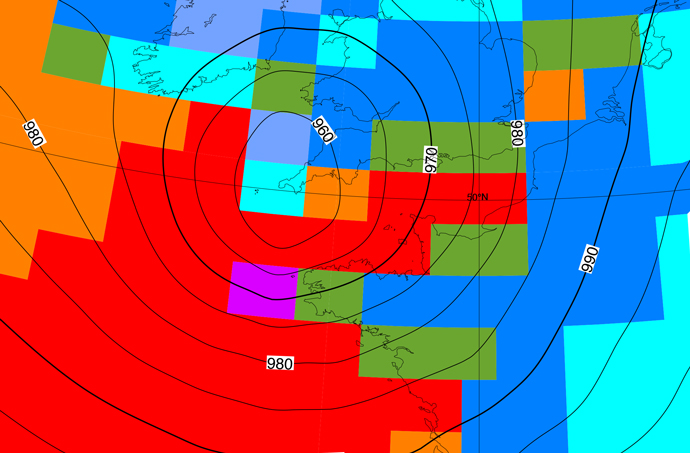ECMWF has launched a four-year project to build on its members’ development, testing and implementation of machine learning (ML) across their weather forecasting chains.
The next few months and years will see a push toward targeting all parts of the forecasting chain as well as adding the probabilistic dimension that forecasters need to assess all possible future weather scenarios, as well as their likelihood. The organization asserted that a lot of work is still needed before ML models can safely and accurately complement conventional models, and it will certainly be a challenge to get it right.
Existing initiatives that fall under this project include increasing resources within ECMWF to broaden the scope of its work on ML; intensifying ongoing work on a hybrid model mixing conventional and ML methodologies to develop a fully data-driven forecasting system; and the further development of the Artificial Intelligence/Integrated Forecasting System (AIFS) to create a full forecasting chain solely using ML.
Norway and Switzerland have taken joint lead in the latter project and will coordinate its development. Roar Skålin, director general of Met Norway, and Christof Appenzeller, director of MeteoSwiss, said in a joint statement, “Whilst many ECMWF member states are already involved in machine learning within their own meteorological services, it is important that we continue and even intensify the collaborative approach. This will be key to Europe’s leadership in weather prediction. Machine learning has a huge potential to improve our forecasts and services and will allow us to better protect all citizens from the impact of severe weather. From the recent and very promising results we are seeing now from our own experiments and ECMWF’s AIFS on a global scale, it is clear that this is a direction we must forcefully invest in.”
Additionally, the European Union’s Destination Earth initiative has been granted substantial extra funding to specifically intensify the use of ML in the development of an ML-based Earth system model that will support quantifying uncertainties in the Earth system digital twins and enhancing their interactivity capabilities.
Speaking on behalf of the consortium leading the development of the Weather-Induced Extremes digital twin, Marc Pontaud, director of research at Météo-France, said, “The importance of the digital twins and the positive impact that they can bring to society cannot be overstated. The additional funding to focus on artificial intelligence offers us game-changing improvements to our alert and advisory systems and will strengthen the ability of European meteorological services to forecast extreme weather events in a new, efficient way and benefit impact sectors.”
To find out more about ECMWF’s latest developments, click here.



